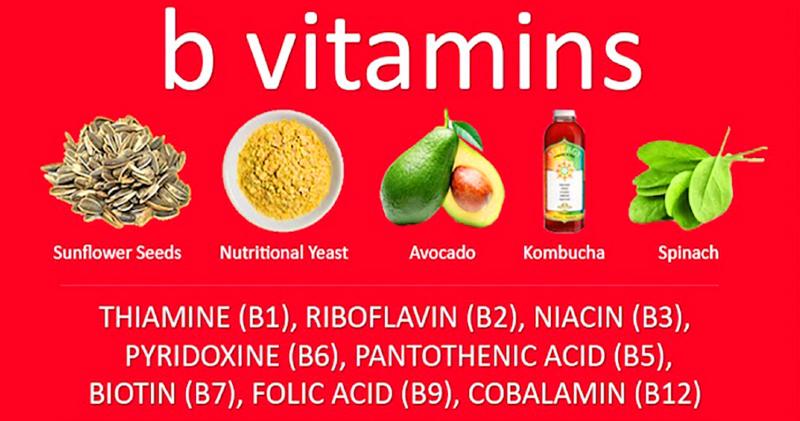
For example, vitamin B2, or riboflavin, has been shown to lower homocysteine levels. Homocysteine is an amino acid linked with heart disease, so if you can lower it, you could, in turn, reduce the risk of heart disease. Additionally, the rest of the B vitamin spectrum offers a broad spectrum of benefits ranging from anxiety and mood to reducing the chance of Alzheimer’s disease and protecting vision.
However, many people in the United States are deficient in B vitamins, particularly B12, especially within people who are in their older years. This article will examine what a “B-complex” is, who is at risk of B vitamin deficiencies, and the benefits of B-complex supplements.
A B-complex supplement typically includes the following B vitamins:
• B1 (thiamine): Thiamine plays a vital role in metabolism by helping convert nutrients into energy and metabolizing carbohydrates.
• B2 (riboflavin): Riboflavin helps convert food into energy and also acts as an antioxidant.



